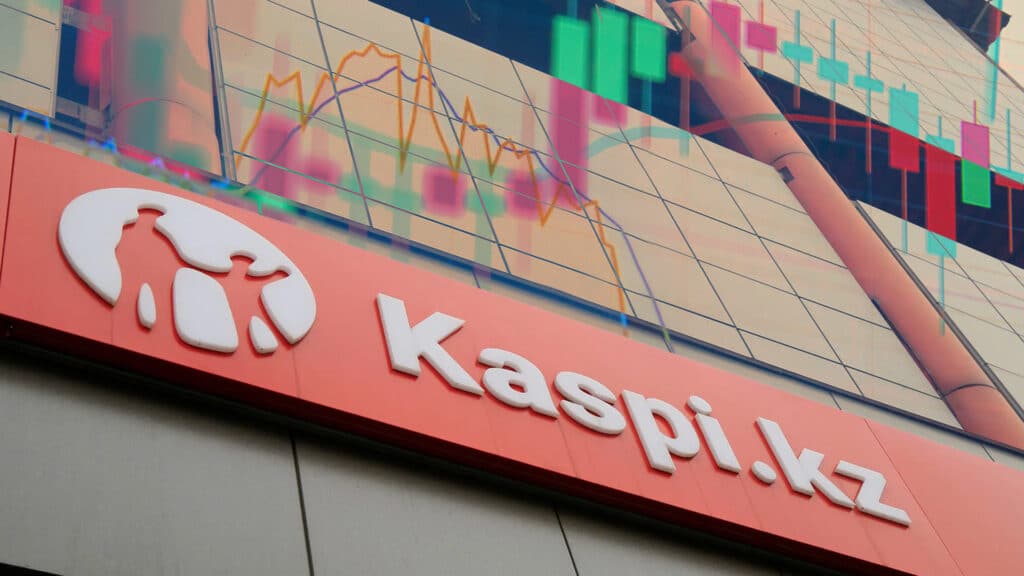Kaspi.kz rejects accusations by short sellers

Kaspi.kz, a Kazakhstani fintech company, has denied accusations made by Culper Research, a firm specializing in «full disclosures» to profit through short selling. The company described the report as inaccurate, misleading and misrepresenting its business. Kaspi.kz published its official response to Culper’s report on its website.
The company believes that the attack was triggered by its successful listing on Nasdaq.
«Being the first company from Kazakhstan to successfully list on Nasdaq has obviously raised our profile among short sellers. For investors who have known us over the years, our reputation speaks for itself,» the company said in the statement.
On September 19, 2024, Culper Research accused Kaspi.kz of violating U.S. sanctions against Russia, allegedly breaching these sanctions right before its Nasdaq listing. Kaspi.kz shares dropped 23% on Nasdaq, later rebounding to $91 and then to $94.
Kaspi.kz Founder and CEO Mikhail Lomtadze dismissed Culper Research’s publication as a «typical short sellers’ attack.»
«The report is inaccurate and misrepresentative, created deliberately to mislead investors. We are a public company under strict regulatory control. Our shares were traded on the London Stock Exchange starting in 2020, and now they are traded on Nasdaq. We disclose information regularly in full compliance with regulatory requirements. Furthermore, we underwent stringent due diligence as part of our recent Nasdaq IPO. We have strong confidence in our products, financial statements and compliance mechanisms. As always, our focus remains on our long-term strategy,» Lomtadze said.
This isn’t the first time a Kazakhstani company has faced attacks by short sellers. Last year, Hindenburg Research issued an «investigation» accusing Freedom Holding Corp. of breaching anti-Russian sanctions and falsifying financial reports. In an interview with Kursiv.media, Timur Turlov, Freedom Holding’s founder and CEO, denied the charges, suggesting the report was based on claims made by a former employee. Later that year, two independent international legal firms conducted due diligence and found the accusations groundless. Lawyers reviewing Hindenburg’s report concluded that important facts were omitted and that there was a lack of evidence to support the claims.
As a result, short sellers experienced a «short squeeze» when Freedom Holding’s stock prices rose rapidly, forcing them to cover their positions. Within days of the attack, the company’s shares rebounded and their value increased, leading to millions of dollars in losses for short sellers.
Before targeting Freedom Holding, Hindenburg Research had issued similar reports on companies such as Nikola Corporation, Clover Health Investments and Lordstown Motors Ltd. In early 2023, Hindenburg targeted an Indian conglomerate controlled by billionaire Gautam Adani, accusing the group of securities manipulation and misuse of tax havens. The report also highlighted the group’s large debt, while Citigroup refused to extend margin lending for the company.
Although the Adani Group denied the allegations, calling them misinformation and baseless, Adani Enterprises Limited lost 38% of its market value in a week and 62% in a month after the attack. However, by January 2024, the company’s stock had nearly regained its previous value, with slow growth starting in April. Despite this recovery, Adani Group lost $153 million in market capitalization, while short sellers from Hindenburg earned $4.1 million, much less than they had anticipated.
In July 2024, the U.S. Securities and Exchange Commission (SEC) and the U.S. Department of Justice (DOJ) accused prominent activist investor Andrew Left and his firm, Citron Capital LLC of $20 million fraud committed over several years. According to U.S. investigators, the firm published false and misleading statements, encouraging investors to buy specific stocks. Left now faces up to 25 years in prison for fraud related to various stocks, including Tesla and Nvidia. Notably, Left was also the one who initiated the wave of accusations against Freedom Holding in 2023.

